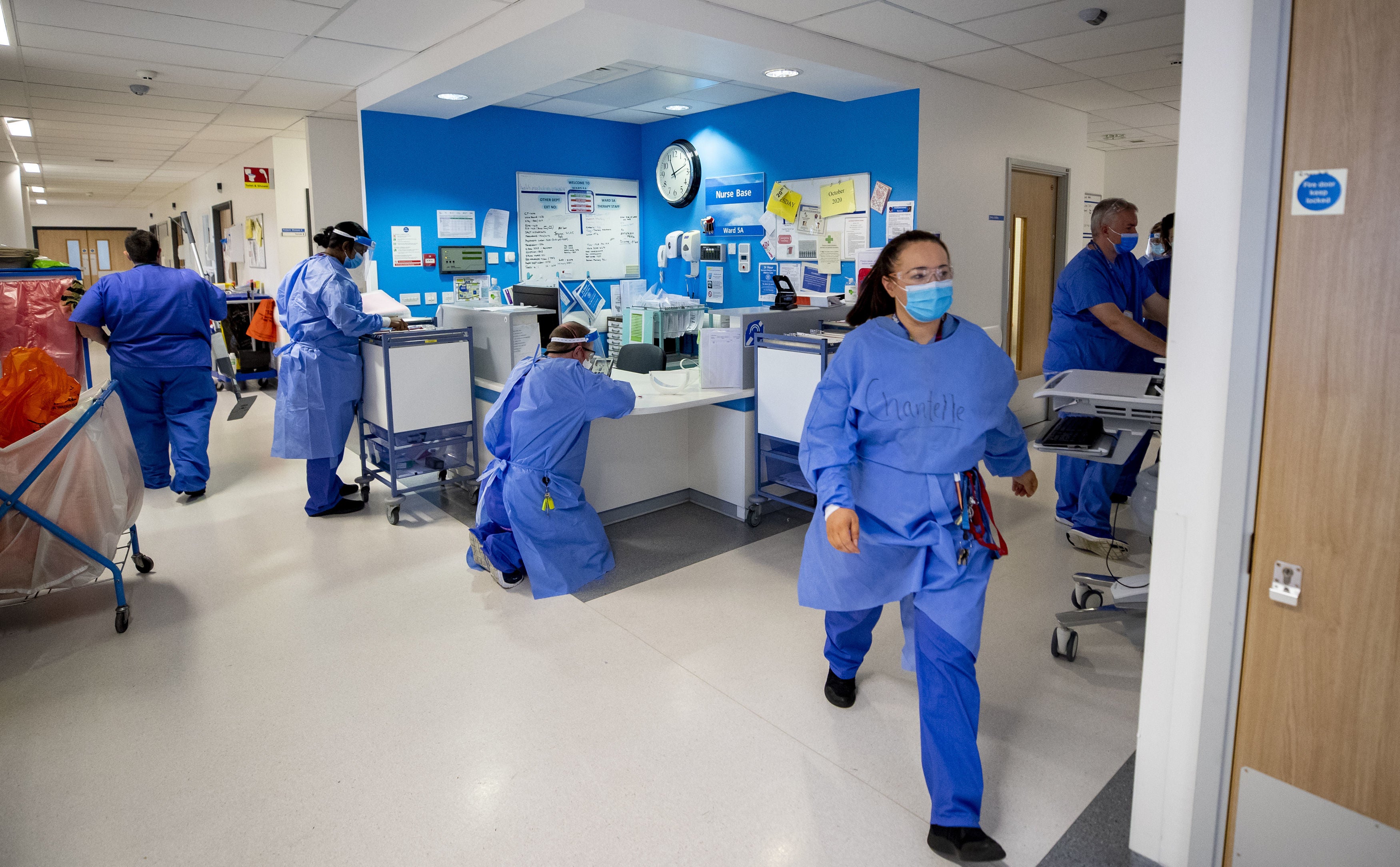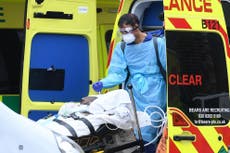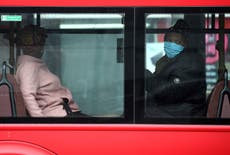Covid: Thousands of BAME doctors ‘do not feel safe at work’
‘It is untenable that a year into his pandemic we are seeing results like this’

Your support helps us to tell the story
From reproductive rights to climate change to Big Tech, The Independent is on the ground when the story is developing. Whether it's investigating the financials of Elon Musk's pro-Trump PAC or producing our latest documentary, 'The A Word', which shines a light on the American women fighting for reproductive rights, we know how important it is to parse out the facts from the messaging.
At such a critical moment in US history, we need reporters on the ground. Your donation allows us to keep sending journalists to speak to both sides of the story.
The Independent is trusted by Americans across the entire political spectrum. And unlike many other quality news outlets, we choose not to lock Americans out of our reporting and analysis with paywalls. We believe quality journalism should be available to everyone, paid for by those who can afford it.
Your support makes all the difference.Hundreds of doctors from black, Asian and minority ethnic backgrounds (BAME) do not feel fully protected from Covid-19 at work, a by British Medical Association (BMA) survey suggests.
The findings came from a survey of 7,776 doctors and medical students across England, Wales and Northern Ireland in December.
Of the BAME respondents, 72 per cent said they felt only partly protected, or not protected at all from infection, compared with 60 per cent for white respondents.
Dr Chaand Nagpaul, chairman of the BMA Council, said: “We should not have a situation in this country where health and social care workers, Bame or otherwise, are feeling unsafe or at risk from death or disease in their workplace, especially in the NHS where that work is to save the lives of others.
“It is untenable that a year into his pandemic we are seeing results like this.”
The BMA also notes that less than half (46 per cent) of Bame respondents said their employers had assessed their level of risk from the virus and felt confident the necessary safety adjustments had been made to their role.
The findings show 14 per cent of BAME respondents said they had not been assessed and thought adjustments are needed, while 15 per cent said they had been assessed but their safety measures needed updating.
More than half (55 per cent) of white respondents indicated they had been properly risk assessed, with just 7 per cent saying their adjustments needed to be refreshed.
Dr Nagpaul went on: “These results underpin a horrible truth; we have known from very early on in the pandemic that health and social care workers of BAME background are more likely to become ill and die from this virus.
“Covid has exacerbated existing racial and cultural inequities within our health service that have contributed to this disparity.
“We now want the Westminster government to bring in proper solutions to address the known ethnic disparities and inequalities.”
It comes as a large cohort study recently found disproportionate rates of premature death from Covid-19 among patients of Asian and black ethnicity,
Research published in the journal BMJ Open, based on nearly 1,800 patients admitted to five acute hospitals within Barts Health NHS Trust between 1 January and 13 May 2020, found that patients from minority ethnic backgrounds were younger and less frail, compared with white patients.
It also showed that black patients were 1.8 times, and Asian patients 1.54 times more likely to be admitted to an intensive care unit (ICU) and need mechanical ventilation.
A spokesperson for NHS England said: “It is absolutely right that staff are supported at work which is why it's so important that more than one million risk assessments had taken place by the end of 2020, including 96 per cent of colleagues from a black and minority ethnic background having been assessed, and alongside regular reviews by employers for staff to ensure their wellbeing, crucially we are committed to giving all frontline health and care staff a Covid-19 vaccination by the middle of February.”



Join our commenting forum
Join thought-provoking conversations, follow other Independent readers and see their replies
Comments